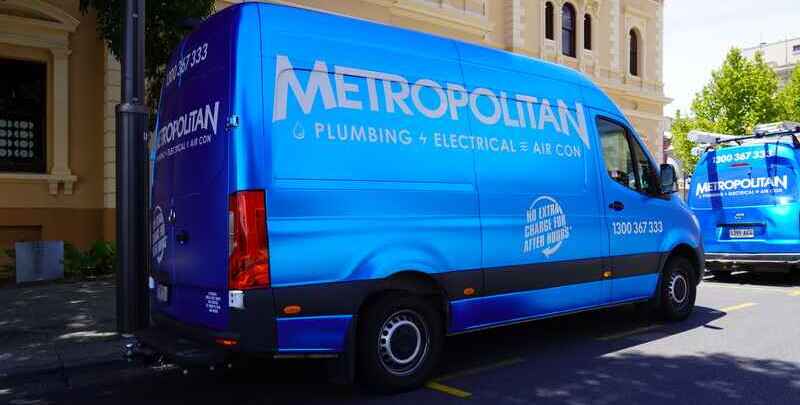Hydronic heating uses hot water circulated through pipes and radiators to warm up rooms. Unlike ducted systems, it provides consistent, radiant heat without blowing air or stirring up dust. The water is heated by a gas boiler or heat pump, then pumped through a sealed system. Hydronic heating is known for being energy-efficient, quiet and ideal for allergy sufferers.

Why Should I Consider Hydronic Heating?
Winter is fast approaching, which means our home heating will be getting primed and ready for action. If you’re considering upgrading your existing heating solutions, hydronic heating is a somewhat niche option in the Australian market, but an option that is gradually growing in popularity.
Haven’t heard of hydronic heating? By the end of this blog, that will change!
Highly popular in Europe and the United States, hydronic heating boasts numerous health benefits. It’s energy efficient and can lead to lower power bills. There are good reasons why hydronic heating has become a much-loved heating option throughout the world; here is why you should consider it for your home!
How It Works
As the name suggests, hydronic heating uses water to heat your home. The system circulates heated water throughout your home via sealed pipes.
The heat then gets dispersed throughout various rooms using panel radiators, convectors or underfloor heating systems, keeping the climate consistently warm and comfortable. This is similar to ducted heating systems, but it uses natural radiant heat. You can even have heated towel rails in your bathroom, if you want to take that step towards winter comfort.
Hydronic heating systems heat water in many different ways, including the use of:
- hydronic boilers
- wood heaters
- solar panels
- geothermal heat pumps
Each of these systems comes with its pros and cons, with thermostat, style and budgetary considerations to be made.
The system that suits you best will come down to your particular heating needs and access to power resources.

Hydronic Heating Benefits
Hydronic heating presents a wealth of benefits that could see you get a lot more out of your heating system. If you install hydronic heating, you’ll enjoy the following benefits:
Health
Traditional heating systems circulate air or merely push air around your home. This method can have a negative impact by drying out the air and picking up allergens, contaminants and dust.
Central or ducted heating systems can be bad for this, particularly if you don’t keep your ducts clean. For anyone sensitive to poor air quality, such as asthma sufferers, it can be a concern.
Hydronic heating systems, however, transfer heat to objects (just like in nature) rather than distribute air. This is called radiant heating and promotes a healthier environment for you and your family.
Energy Efficiency
Hydronic heating is regarded as one of the more energy-efficient forms of heating your home. This is because water is a better heat conductor than air, so it uses less energy to warm your home. Radiator panels produce radiant heat, which means the air pressure is never increased.
Modern hydronic systems also allow you to control the temperature in each area of the home through a thermostat, meaning you don’t waste energy in parts of the home you’re not using.
And it is an environmentally friendly way to heat your home. The water used for the process gets recirculated and recycled throughout the system, which prevents unnecessary wastage.
Comfort
Hydronic heating systems come in so many variations, there is bound to be a system that suits your needs. Whether it’s under the floors or in a few rooms, the hydronic piping can be placed and easily routed around new and existing homes.
Running on a range of fuels from electricity to natural gas, this heating system is one of the most versatile on the market. Working in silence, a hydronic heating system is one of the most comfortable systems for the home.
Multi-zone functions and balanced humidity levels are also benefits that ensure your continued personal comfort.

Disadvantages of Hydronic Heating
Of course, hydronic heating won’t be suitable for every home. While it has gained popularity for its efficiency and comfort, it’s essential to consider the potential disadvantages of hydronic heating before making a decision.
Here are some possible drawbacks to a hydronic system:
- Installation complexity: Cards on the table – installation can be significantly more complicated. Compared to traditional forced-air systems that get installed in the roof space or on the walls of your home, hydronic heating typically gets installed as an underfloor heating system. It involves laying pipes or tubing throughout your home, which may require significant modifications, especially in existing structures.
- Cost: Is hydronic heating expensive? Yes, it can be, because of the aforementioned complications with the installation process. While hydronic heaters can be cost-effective in the long run due to their efficiency, the initial installation cost can be quite high. You’ll need a boiler, pumps, and radiators or underfloor tubing, all of which add to the upfront expenses.
- Maintenance: Hydronic systems require regular maintenance to ensure they run smoothly. You’ll need to check for leaks, maintain the boiler, and ensure proper water chemistry, which can add to ongoing costs.
- Slower heating: Hydronic heating systems typically heat up more slowly than forced-air systems. This means you might have to wait a bit longer for radiator panels to heat up and for your home to reach a comfortable temperature.
- Limited cooling options: Hydronic systems are primarily designed for distributing warm air and don’t provide cooling capabilities. You may need a separate air conditioning system if you live in a region with hot summers.
While hydronic heating offers many advantages, these disadvantages should be carefully considered to determine if it’s the right choice for your home and budget.
What Are You Waiting For?
Hydronic heating is growing in popularity around Australia, providing a range of benefits for those who choose to install it. While it can be expensive to install, you’ll notice the difference in your heating costs.
Metropolitan Air Conditioning has more than 25 years’ experience within the field, and hydronic heating work has become a specialty. We can advise on a system to suit you. We’re available 24/7, every day of the year and always aim to be at your door within an hour* of your call.
What are you waiting for? When it comes to energy efficiency and getting the most out of a heating system, you know what to do. Contact Metropolitan Air Conditioning today.
Please note: This information is provided for advice purposes only. Regulations differ from state to state, so please consult your local authorities or an industry professional before proceeding with any work. See our Terms & Conditions here.
Frequently Asked Questions
Yes, hydronic heating can be retrofitted to a home, although the ease of installation depends on your property’s layout and structure. Existing homes without suspended floors or cavity walls may require more invasive work, but underfloor or in-slab hydronic heating is still possible. It’s important to consult licensed installation specialists to assess your home’s suitability and the best hydronic heating system for your needs.
Hydronic heating products for the home include panel radiators, under-floor heating systems, towel rails, trench heaters and more. Boilers, heat pumps and thermostatic controls are essential components that vary in size, output and efficiency. Choosing the right hydronic heating products depends on your home’s layout, insulation and the type of heating experience you want.
Hydronic heating is one of the most energy-efficient options for home heating. It uses water’s thermal mass to retain and distribute heat evenly, reducing energy consumption. Because it doesn’t rely on fans or ducts, there’s less heat loss, and homeowners often find it more cost-effective to run long-term compared to traditional forced-air systems.
Though gas-powered hydronic heating systems don’t have energy rating labels in Australia, your supplier should be able to guide you on the gas boiler’s efficiency. Sustainability Victoria recommends choosing a condensing boiler with an efficiency between 89-94%.
Published: 2025-04-08

































